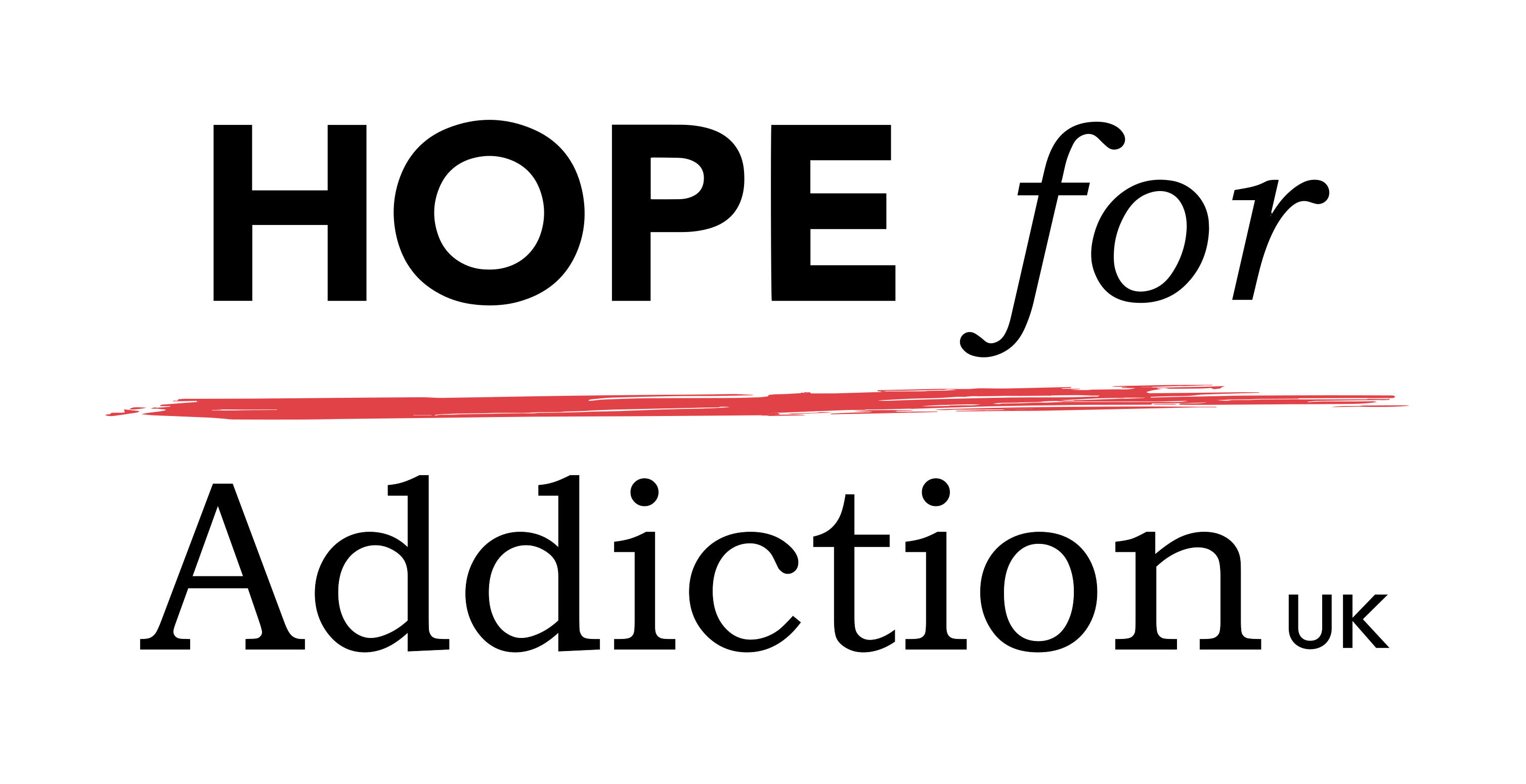At Hope For Addiction UK, we run a session titled ‘Respond Well When You Go Wrong.’ It does what it says on the tin. It is designed to help people who falter on the road to recovery because we are just as interested in how people respond when they misstep in life as we are when things are going well.
One way to respond when we fall down is to increase our commitment and effort to get back on track and stay there. Pull up the boot straps and invest yourself all the more in recovery and choose life. Yet whilst this is helpful, it has its limitations because commitment can waiver, people can be fickle, and our good intentions are sometimes short lived.
So, whilst we may want to try harder and do better, we may also want to think more about God’s commitment to us than our commitment to Him. This is the real fuel we need when we are riding the waves of change and the storms of life that threaten us in recovery. God is way more committed to us than we are to Him, and this is seen across the whole of the bible in the five key covenants. When this sinks in, life somehow feels lighter.
We see this firstly in the Noahic covenant (Genesis 8:21-9:1). Where sin invited a just judgement in the Noahic flood (Genesis 5:5-7; 7:1-24), in the Noahic covenant that follows, God exercises patience with humanity and his long-suffering nature will be on display until the second coming of Christ. In other words, He makes a choice to live alongside human suffering and sin in a fallen world and in that sense, He enters into our world and our lives, something that is exemplified in the Lord Jesus Christ himself. So hot on the heels of great sin, there is great grace where God demonstrates His commitment to humanity, exercises restraint and creates stability, which allows the unfolding of the redemptive covenant that we see next.
The second covenant comes a few chapters later in Genesis and once again it is hot on the heels of great sin at the Tower of Babel (Genesis 11). This was mankind’s attempt to build heavenward, create a name for themselves and try to become as great as God himself. Some writers even detect a human desire to outrun God’s judgement as the Tower would reach above the flood line of the Noahic flood. Of course, the life of addiction, with a good measure of pride, self-will and trying to outrun God and the consequences of our sinful lives, fits well with these themes. Yet once again, it’s at a point of great hubris that God enters with the Abrahamic covenant and the promise to bless the nations. In the midst of human pride and an outright challenge to His authority, He not only judges and disassembles the plan, but takes steps to draw near through the line of Abraham. He promises to bring blessing which is a promise He won’t forget as we see next.
The third covenant could be called (amongst other things!) a covenant of friendship and it is striking because where the Israelites are enslaved to Pharaoh and may feel they have been forgotten, God remembers them precisely because of the Abrahamic covenant (Exodus 2:24-25). It is also telling that ‘God knew’ of their suffering and that the Hebrew word for this is akin to the intimate knowing of a marital relationship as previously used between Adam and Eve. God rescues His people from the slavery of Egypt, opens up to them in the Mosaic covenant and offers friendship with Moses (Exodus 33:11) whilst revealing more of who He is to the nation. (Exodus 20). Any worthwhile friendship involves openness and inclusion, something we were not always great at in addiction as we shut the world out and often lost friendships. Will the people listen? Will they obey? Unfortunately not, as becomes clear.
The fourth covenant underlines the fickle nature of human beings who often grasp at temporary, short lived solutions to long term problems. It comes during a period where God’s people reject Him and would prefer a human king like the rest of the world and so they make a demand for this (1 Samuel 8). God in his grace accommodates but then offers an everlasting Kingdom in the Davidic Covenant (2 Samuel 7) which cannot perish, spoil or fade (1 Peter 1:4). Sadly, the only thing that seems everlasting is sin which takes us to the fifth and final covenant.
In the fifth covenant and further along in biblical history we are faced with the reality that God’s people keep doing the same old thing, in the same old way and exchange God’s truth and worship created things rather than the creator. As the New Testament indicates, the law of God condemns rather than liberates (Gal 3:11-12). This sounds like the life of the addict and is the story of wider humanity as is seen in the nations (Jeremiah 45-51). As the bible unfolds, sin is piled upon sin and old habits continually resurface due to the evil of the human heart (Jeremiah 17:9). It is then in the mess of sin that God will break the same old, by offering something completely out the box in the New Covenant. The new thing in the New Covenant, is that God will offer forgiveness of sins permanently, in the Lord Jesus Christ and will remember sin no more. In addition, he will dwell within permanently, through the Holy Spirit and fulfil the promise to Abraham to be a blessing to the nations. (Jeremiah 31:31-34, Ezekiel 36:24-28, Galatians 3:7;13-14, Hebrews 8:7-13). So, in the midst of constant rebellion, God draws closer than ever before.
Taken together, these examples from across the bible demonstrate God’s unwavering commitment to the sinner and are meant to engender a love for Him and a trust in Him. For the Christian in recovery, they also speak to our hearts when we go wrong in life.
The covenantal God is patient with you and draws near…
When we go wrong, we often feel that people and even God himself will run out of patience. Not so according to the Noahic covenant. When we go wrong in life people sometimes dessert us and so we often feel that God will do the same. Yet God surprises us and draws close. Yes, he exercises judgement and deconstructs our lives as in Babel, and we feel that, but he also does the opposite of what we might expect when we fall down as in the Abrahamic covenant. This is the same surprise of the Davidic covenant and the New Covenant where in the midst of rebellion God draws near. It is the same surprise that Jesus offers in Matthew 11:28 and that perhaps Paul states in Romans 8:39.
The covenantal God remembers you…
When we go wrong in life, it can feel like nobody notices and we are alone in our pain, but the Exodus from Egypt is actually a picture of the gospel and whilst the people were enslaved, God remembered his covenant. When we fail and find ourselves enslaved to sin, we may feel we are without companionship and care, but God never forgets us even in our greatest despair, even in our sin. This is the motivation to cry out to him (Exodus 2:23). We can go further and say that he has an intimate knowing of our problems and challenges, an awareness of our deepest desires and hopes, as well as our sin, and so He is perfectly placed to step in and help us.
The covenantal God will change you…
Finally, when we go wrong in life, we can feel that nothing will ever change but God is keen to get to the root of the matter. The permanency of the Davidic Covenant stood against the fleeting hope that a human king would solve the people’s problems when it was the equivalent of putting a plaster on a broken leg. The New Covenant would strike at the heart of human sin literally, by offering a heart transplant in the Lord Jesus Christ and the most effective plan for change.
When sin rears its head we sometimes frantically latch on to temporary fixes and with a degree of panic we either home in on the externals in our lives and try to suddenly change things at a superficial level. Perhaps we play the blame game with the externals and look to the relationship, the finance, the job or whatever else ‘lead’ us back into active addiction. Perhaps we replace one failed plan with another. God, however, goes straight to the heart.
All of these themes emphasise that God is way more committed to us than we are to Him and when we respond out of that, we respond well when we go wrong. This raises an obvious question though. If we want this relationship to underpin our recovery and response to all manner of things that can go wrong in life, we must then ask ourselves, are we part of His covenant people? Have we placed our trust in the Lord Jesus Christ who established the New Covenant through his work on the cross? As we like to emphasise at Hope For Addiction UK, sobriety is not salvation and even if you’re clean and sober you may have another step to take in order to receive the covenantal blessing of knowing this God who can help us throughout the whole of our lives.


0 Comments